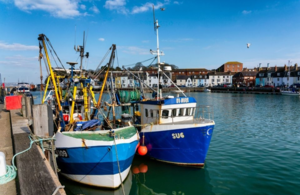We urge the Security Council to expand the UN’s cross-border mandate in Syria
Thank you, Madam President.
First, let me thank Under-Secretary-General Griffiths and Dr Almouslem for their briefing, and for the vital work they and their colleagues are doing for the Syrian people.
Over the coming weeks, this Council will be considering the future of the UN’s mandate to deliver cross-border assistance for Syria.
When we authorised the UN to deliver cross-border aid in 2014, over 10 million people required assistance.
Now, around 14.6 million Syrians require humanitarian assistance – more than 80% of the population.
With the backdrop of a growing global food crisis, the ongoing impacts of the COVID19 pandemic and increasing violence, it is clear that the Syrian people need more support from the international community.
The United Kingdom has supported the Syrian people from the start of the conflict, having spent over $4 billion in aid to date.
And, in the last six months, UK funding on early recovery, a key element of resolution 2585, has enabled:
the rehabilitation of water networks;
agricultural training and inputs for livestock and vegetable production;
and, apprenticeships and small business grants to help create jobs and fill key gaps in the market.
At the Brussels Conference last week, the UK committed nearly $200 million over the course of 2022.
This funding will help further scale up early recovery and resilience interventions inside Syria and support vital humanitarian efforts to rebuild the lives of Syrians.
Madam President,
The UN cross-border mandate sits at the heart of this humanitarian support, serving over four million people in North West Syria.
We have heard time and again, from the UN and NGOs on the ground, that there is no viable alternative to the mechanism — and Dr Almouslem has made that point again clearly and powerfully today.
Closing the Bab al-Hawa crossing would mean
reduced access to life-saving sexual and reproductive health services for women and girls;
severe disruption to early recovery efforts;
a devastating hindrance of ongoing efforts to vaccinate Syrians against Covid19;
and, without the UN’s ‘gold standard’ monitoring mechanism, closing the crossing would make it easier for aid to get into the hands of terrorists.
This Council needs to support the Syrian people who are trying to build a better future.
So, we urge Members to support the renewal and expansion of the UN’s cross-border mandate in July.
Thank you, Madam President.

